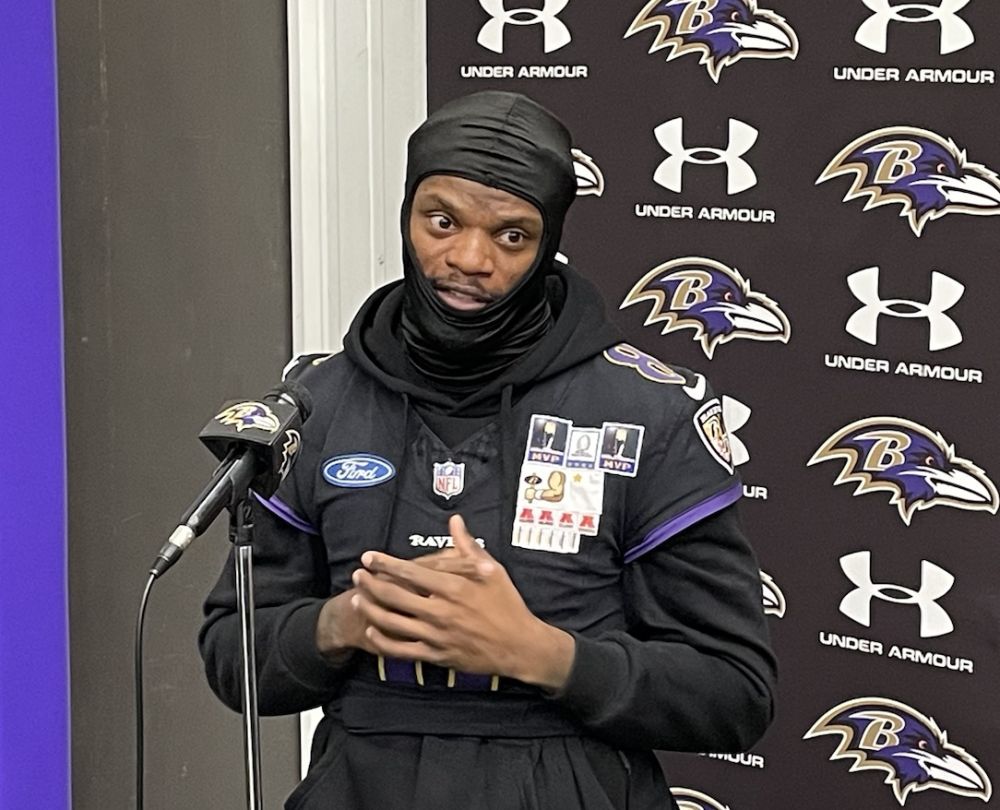other than TV and radio. But The Sun in its monopolistic form in the 1990s, was the ONLY place to get this content in the written form.
But over the last decade, the newspapers have become “olds papers” very quickly.
Most days during the late 1990s and the early part of the century as my radio career evolved, I actually had the day’s news before The Sun. I was at practice most days – for Orioles batting practice or Ravens practices in season – and I went on the radio at 4 p.m. with the latest tidbits, injuries, etc. and the paper didn’t hit the streets until 5 a.m. the next day. And the WBAL-AM 1090 pre-game show didn’t come on until 6 p.m. So I always had the lineups first, the injury reports first and if any “breaking news” like a trade or an arrest happened, I was the first place that had the news and the only place where a regular Joe could call in and opine publicly about whatever the subject matter. But again, you couldn’t read the standings or the box scores on the radio dial.
The Ravens’ emergence in 1996 and the passion for NFL information and the lack of local resources who really knew the league changed the need for the distribution of sports media in Baltimore. People here didn’t really know that they shouldn’t cheer on offense after a generation of football was absent. Early on, I actually had buffoons call and say that Johnny Unitas should be the offensive coordinator or that the Ravens should keep Jon Ogden at guard. And people here certainly didn’t know the salary cap or a lot of the new-world strategies in regard to the inner workings of the game.
Luckily, I had guys like Jim Schwartz and Pat Hill and Marvin Lewis and Kevin Byrne and David Modell teach me about the NFL circa 1996 and I was in a format that was longer than 12 inches of newspaper space or a two-minute highlight reel on the 6 or 11 o’clock news so I could use the information and knowledge and format to my advantage.
While I had a “long format” edge to opine, educate and entertain in the 1990s and early part of the century, television still had the ultimate “big news” monopoly – and still does with some events like the blizzards, trials for crooked Mayors or police chiefs or the crazy Joe Palczynski saga. But the world is now turning to social media to see what their Facebook friends are saying about issues and what people on Twitter are “trending” on a topic.
And, as we’ll discuss at length tomorrow, I think smart people are very, very skeptical about what they’re seeing in modern, corporate-run broadcast American media these days because these entities have censored information and lied to them for so long.
The definition of “bought off” means paying money for a certain tilt to a message. And that’s happening every day right under your nose in Baltimore, especially with the Orioles.
The Sun, WBAL, WJZ – pick any local corporate brand of your choice — they’re ALL desperate to keep sales going because their numbers dwindle every year because the eyeballs are going elsewhere in a big web world and mostly because the product doesn’t have the urgency or the “trustability” or the resonance within the culture, especially for the younger “Ipod generation” who’ve never known a tiny world of three local TV stations, one newspaper and a few local radio stations.
Anyone under the age of 30 has no recollection of life without cable TV and hundreds of channels of specialty programming and millions of websites with endless possibilities and voices and opinions.
Roger Ebert and Gene Siskel were the only ones in the world reviewing movies 25 years ago. Now, every one of your Facebook friends is a critic — a food critic, a TV critic, a chef, a political analyst or a local sports expert.
As Deion Sanders once told me,






















